With so much on their plates – growing caseloads; surgeries, visits, emergencies, professional development, admin, management – wouldn’t it be welcome if some aspect of doctors’ workloads could be managed so that they could be “hands off” when things are going well, but still fully informed, and able to intervene at a moment’s notice, if needed?
It is possible – and it’s happening, thanks to the steady integration of technology into general practice and, in particular, telehealth.
Individuals with long term conditions (LTCs) like hypertension, cardiovascular disease, diabetes, COPD, prefer to see themselves as people, not patients, and would happily minimise routine aspects of managing their condition, like monitoring, medicine top up, checks with the doctor. They want to get on with their lives and, as far as possible, avoid being defined by their condition.
People with complex co-morbidities are living longer, and an increasing array of support is needed to maintain and improve their health and independence. Health and social care professionals need to be proactive in providing the best possible service, and telehealth providers also need to see themselves as healthcare providers.
GP’s who spend less time checking up on people, who are happy to manage their LTCs on their own, can be more effective. They will still know how each patient is doing, when supported by to a robust and secure case manager database, fed by effective and easy-to-use patient devices. Routine reminders are given, medications monitored, and visits scheduled, where necessary. And, should anything go awry, they can be involved straight away, fully abreast of the situation.
“Telehealthcare” is moving beyond placing self-monitoring equipment in homes, towards:
- engaging communities in their healthcare
- care planning as a motivational tool
- social media support networks for education and empowerment
- agile mobile solutions for day-to-day convenience
- internet sites for following vital signs and maintaining a personal health record.
But a few boxes need to be ticked to make this vision a widespread reality.
First – are patients OK with it?
Patients would be right to expect independence, doctor access and successful maintenance of their conditions, among others. This is all possible, so long as the focus is on healthcare first, not technology. Telehealthcare keeps the patient/doctor interface open because, when that relationship is maintained, efficient devices and data management add confidence and can improve a patient’s situation.
Second: does the system actually work? It takes very few failures when dealing with healthcare, to cast doubt over a whole concept. But telehealthcare services patient and doctor needs in a way that improves quality and productivity, safety, efficiency and reliability.
Solutions4Health considers the unique key features of its delivery model essential within the healthcare & telehealth industry. Its iTelehealth® platform, provides a comprehensive, secure environment to hold and manage data, letting patients be guardians of their own records and healthcare outcomes. The platform integrates an online video/audio chat capability, a secure personal health record database, handheld wireless monitoring devices, and “case manager” software for healthcare professionals.
Even where the “hands-on” clinician involvement is essential, telehealthcare continues to score – not just with its devices, but also with high integrity data collection, monitoring vital signs and illness management systems, which enable tele-consultation, counselling and support.
Next, how do the clinicians feel about it? Will they save time or, at least, make better use of their time? Can they feel confident that patient care is not being compromised? That requires the kind of “healthcare first” approach that Telehealthcare provides. It is in everyone’s interests to ensure that patient care is maintained, or even improved – and in cases where patients feel that Telehealthcare gives them more freedom from their condition, improvement is a real possibility. Avoiding unnecessary consultations, home visits and prescriptions has multiple advantages.
Telehealthcare providers must understand the challenges facing clinicians in the NHS today. One is to enable patients or vulnerable persons to remain at home, confident they will receive prompt attention when needed. Another is to enable patients to take more control of their treatment plan and actively participate in consultations.
Uniquely, Solutions4Health has hands-on healthcare expertise AND innovative technical capability in balance, and is focused on using technology to drive forward new methods for patient self-management and clinician support.
Finally: the budget holders need to know how and where value is being delivered. Data from the Whole System Demonstrator trial, while impressive, didn’t push the buttons of those looking at overall cost. But outsourcing routine aspects of general practice has clear cost benefits – saving doctors time, and avoiding patient costs like mobility, medications and equipment.
When applied to the right patients, telehealthcare supports improved clinical outcomes, saved lives and fewer admissions – and patient engagement with their conditions increases. But the industry now needs to work hard to prove further that these benefits actually save the NHS money.
Management matrices within the health services are typically complex and inter-dependent. But too often, telehealth is a cumbersome, possibly stand-alone layer, rather than a focused cost-effective improvement. Telehealthcare savings must clearly cover or exceed their cost. But when one specialist nurse could cost effectively monitor 300 patients at the same time, the economies of scale are self-evident. And the Department of Health estimates that at least three million people could benefit.
The NHS needs a new model so that it can afford to manage chronic illnesses in the future. People need to take more responsibility for their healthcare, and telehealthcare offers a viable route towards self-management.
John Guyatt
Telehealthcare Director, Solutions4Health
Ends













